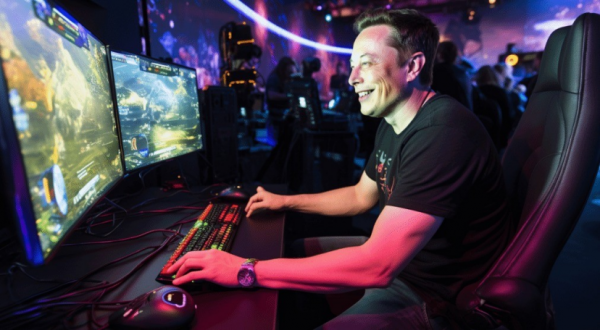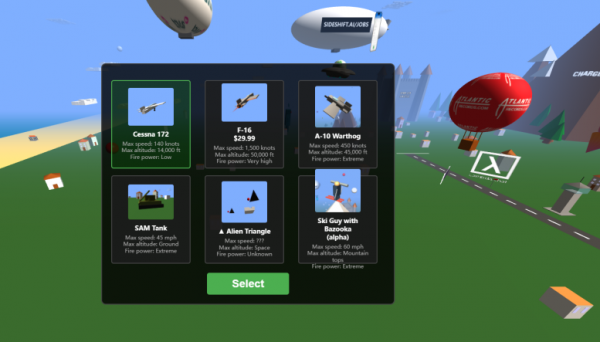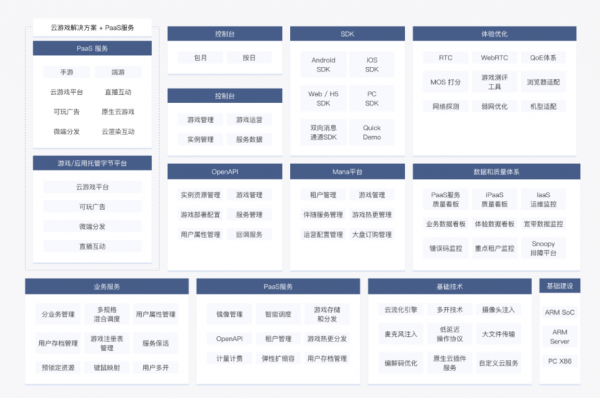AI Games: Musk's Vision and the Surge of Tech Giants
![]() 03/27 2025
03/27 2025
![]() 605
605

AI is not an option; it is a necessity.
Written by/Chen Dengxin
Edited by/Li Wenjie
Typeset by/Annalee
Recently, AI games have repeatedly captivated the internet's attention.
First, Musk reaffirmed the establishment of an AI game studio and unveiled several game products based on the large model Grok 3 from xAI. However, despite his announcements last year, there has been little progress since.
Subsequently, Cai Haoyu, the founder of miHoYo, revealed an AI game titled "Whispers from the Star," featuring AI agent voice interaction, which is currently in closed beta.
Correspondingly, Tencent Games has deeply integrated with DeepSeek, while ByteDance has iterated its Doubao large model to empower games. The momentum of domestic players increasing their investment in AI games is unmistakable.
For a time, this development sparked heated discussions from various quarters.
Some believe that the industry is on the cusp of a singularity moment, where AI games will push the boundaries of imagination. Others argue that AI games will still struggle to shoulder significant responsibilities in the short term.
How can a balance be struck between dreams and reality?
Zero-barrier game development becomes a reality.
Large models and games continue to spark "fireworks."
Since their inception, large models have viewed games as a natural application scenario, especially regarding the hallucination problem, which can even be advantageous in gaming contexts.
Ding Chaofan, head of the AI lab at Giant Network, once stated: "We are exploring the application of AI combined with reasoning and social interaction in games. By conversing, thinking, and competing with AI, the ambiguity arising from the hallucination problem actually enhances the playability of the game, and players' acceptance of technological boundaries has also increased significantly. This avoids the high reasoning cost associated with rapid and continuous reasoning, representing a natural advantage of applying AI in the gaming field."
Against this backdrop, AI games have emerged as a key industry term.
Several noteworthy works have emerged during this process, such as "Be a Dad for a Day," which leverages AI to generate real-time storylines and corresponding images, thereby introducing randomness into the game and achieving a unique experience for each player.
"Entertainment Capital Theory" stated: "The growth journey of each 'son' is bizarre, akin to an alternative 'raising game' filled with pranks. You never know what peculiar 'tricks' your mischievous kid will pull in the next level."
Nevertheless, AI has not deviated from its auxiliary role.
It was not until 2025 that significant changes occurred: large models provided games with greater immersion and freedom, enabling even ordinary individuals to create profitable games with just an idea.
"fly.pieter," praised by Musk, is a prime example. Public information reveals that a game developer utilized the AI code editor Cursor and the large model Grok 3 to develop a 3D multiplayer web game similar to "Microsoft Flight Simulator" within three hours, earning 120,000 yuan within nine days of its launch.

While "fly.pieter" is still relatively rudimentary, it is evident that AI has become the protagonist of game development, sparking a boom in zero-barrier game creation.
A game developer told ZnKedu: "Current AI games are still quite basic, not even comparable to small market games, but they should not be underestimated. AI can handle aspects such as game code, art, and planning. If the path for AI to disrupt game creation is paved, true masterpieces may emerge in the future. This is the ambitious vision Musk seeks to realize!"

Musk laments the boundless potential of AI games.
The aforementioned game developer further stated that the current greatest challenge for AI games is not insufficient playability but rather the low acceptance of AI styles among some gamers.
For instance, recently released AI posters for well-known games like "Call of Duty: Zombies" and "Guitar Hero (Mobile Version)" have elicited dissatisfaction from a large number of players, who believe the officials are being perfunctory and not taking the classic IPs seriously.
Taiyi, founder and CEO of Shenzhen Youxin Diaolong Studio, said: "The situation with domestic players is that if they can't tell (it's AI art), they don't care, but if they can tell at a glance, they will resist."
In summary, AI is a double-edged sword. When utilized well, it can enhance the product strength of games, offering unlimited plasticity and playability under dynamic narratives. When misused, it can offend players.
"Rejuvenating old trees" is the optimal solution.
As evident above, while AI games still have a long way to go, it is undeniable that AI can reshape games.
The "Report on the Development of New Productive Forces in China's Game Industry" reveals that nearly 60% of domestic top game enterprises have established AI production pipelines to empower virtual content production or intelligent marketing.
Li Yifei, chairman of 37 Interactive Entertainment, said: "AI is no longer an 'option;' it is a 'necessity.' 37 Interactive Entertainment has integrated AI across the entire chain. The participation rate of AI in the utilization and management of art assets has exceeded 70%, and significant benefits have been achieved through AI in text-based scenarios such as customer service, translation, and UGC. The usage rate of code AI generation has also increased significantly."
It is noteworthy that AI's reshaping of games is becoming more grounded.
Previously, the implementation of AI in game scenarios focused on process optimization and cost reduction. Nowadays, it emphasizes deep integration, aiming to not only reshape product strength and enhance game development efficiency with the help of AI but also achieve full coverage of game categories and levels of light, medium, and heavy games.
In layman's terms, the pursuit is to "rejuvenate old trees" rather than rebuild from scratch. Whether considered from a technical perspective or commercial interests, this is currently the optimal solution.
Based on this, AI games have gradually evolved into two paths.
One path emphasizes gameplay innovation.
Currently, integrating DeepSeek into games to explore new gameplay that incorporates large model capabilities has become the industry's focus, with Tencent, NetEase, Giant Network, and others following suit.
Among them, Tencent's "Game for Peace" is particularly noteworthy.
After integrating DeepSeek, "Game for Peace" received overwhelming praise from players. The best evidence is that its digital spokesperson Jilly has become a "group favorite": some ask Jilly to assess their combat level, some ask for assistance in wishing and drawing lots, and others seek recommendations for setting the most stable sensitivity...

Image source: Official Weibo of "Game for Peace"
In summary, with the support of DeepSeek, the gameplay of the game is more versatile, providing players with personalized services and increasing the freshness of the game and user stickiness.
In fact, Jilly represents a microcosm of NPC intelligence.
Traditional NPCs interact with players by calling preset content, making their dialogue appear mechanical. After integrating large models, they are iterated into "intelligent NPCs," conversing fluently with players like living beings, thereby having higher emotional value.
Professor Huang Minlie of Tsinghua University said: "Intelligent agents in the AI era need to possess both IQ and EQ, embodying both machine intelligence and human-like intelligence. Game NPCs are anthropomorphized, creating a multitude of roles that deepen gameplay, taking NPCs out of the game and into interactions with the real world. These NPCs can perceive the game state, dynamically generating the behavior and dialogue of virtual characters."
It is worth noting that the deep integration of AI and games is not limited to NPCs. The industry is also exploring key directions such as AI teammates and AI trusteeship.
Taking AI teammates as an example, players can not only obtain a reliable teammate, making it easier to pass levels, but also avoid being held back by unreliable teammates. This reduces social costs while satisfying players, making it the best choice for introverted gamers.
Soochow Securities said: "The maturity of AIGC text has given rise to AI interactive gameplay applications such as Character.AI, Glow, and AI Dungeon, which already have the rudiments of text adventure games and otome games but offer far greater gameplay freedom than traditional games. With the gradual maturity of AIGC image, 3D assets, code, and other technologies, more AI-native gameplay is expected to emerge."
Furthermore, Tencent has launched GameGen-O, the first large model for 3A open-world games, which can simulate multiple game engine functions to generate game characters, dynamic environments, complex actions, and more.
This signifies that AI games have ventured into deeper waters.
In the future, developers can utilize such models to create games with low barriers, and even a paragraph of text or an image can generate immersive video games.
This significantly reduces the development cost and time of games, enabling individuals or small teams to complete the development and polishing of medium to heavy games, making the dream of one person becoming an army a reality.
The other path emphasizes external empowerment.
AI is a highly costly sector with high input costs that ordinary players cannot sustain in the long run. Only powerful internet giants can navigate it effortlessly.
Leveraging external forces is also a viable option.
Among them, ByteDance's performance is particularly noteworthy. The Volcano Engine game AI solution based on the Doubao large model provides a one-stop service integrating game development, testing, deployment, and promotion.
Specifically, it boasts large-scale business support capabilities, meeting requirements such as massive resources, high-speed response, and elastic invocation. It also offers content plugins, RAG knowledge base plugins, internet plugins, etc., which can enhance the search and interaction capabilities of large models, making games more enjoyable.
For instance, the Volcano Engine game AI solution can connect the latest content from ByteDance platforms such as Douyin, Xigua Video, and Toutiao, allowing "intelligent NPCs" to stay updated with the latest trends, making players feel like they are conversing with living "people".

Image source: Volcano Engine official website
Yang Xudong, head of the gaming industry solutions team in the southern region of Volcano Engine, said: "We believe in the power of AIGC and are confident that the Doubao large model and Volcano Engine game AI solution will inject new momentum into the future of games."
In conclusion, it is a consensus in the industry that AI will reshape games, and it has also become a battleground for "Tencent and others." How effectively these players utilize AI capabilities for innovation will determine whether they can gain the recognition of gamers in the AI era.
Therefore, "Tencent and others" need to redouble their efforts.








